Tayside beaver colonies 'adapting well to Scotland'
- Published
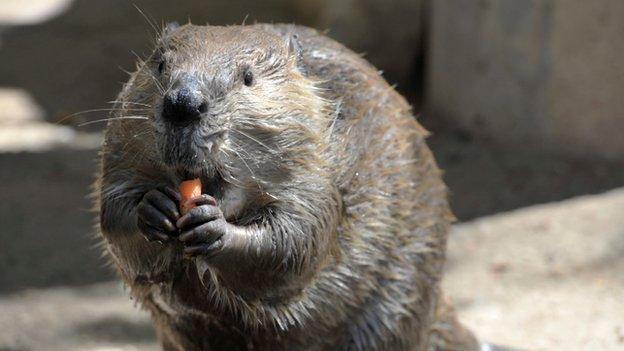
A decision on the future of the beavers is due from the Scottish government later this year
More than 150 beavers living in Tayside waterways have adapted well to life in Scotland, studies have found.
The Scottish government is considering whether to permanently reintroduce the animals to the wild, with a trial scheme underway in Knapdale, Argyll.
Studies concluded that the Tayside beavers, which originated from escapes or illegal releases, had settled in well to the local environment.
Proposals to trap or cull the rogue beavers proved controversial.
The Scottish government agreed to monitor the situation for three years when the matter was last raised in 2012, faced with the alternative options of removing the animals or accepting their presence.
The findings from the Tayside Beaver Study Group will help inform a government decision on the future of the animals in Scotland, alongside a trial reintroduction of the animals at Knapdale in Argyll.
There had been fears that the beavers could damage ecosystems or spread diseases, but the study group set up by Scottish Natural Heritage suggests they have settled in effectively, despite some land management issues.
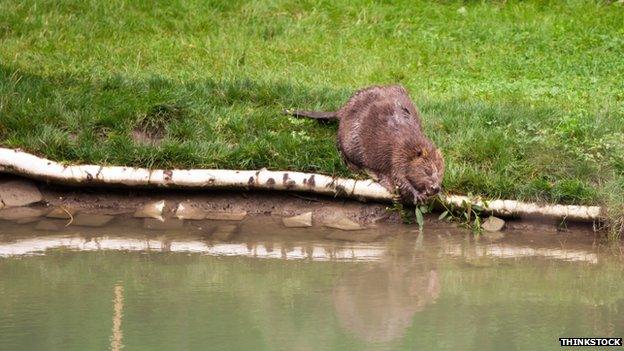
The main concerns about the beavers is the impact they could have on farmland
The beavers, which are of the Eurasian species once native to Britain, have been found in rivers and lochs stretching from Kinloch Rannoch, Kenmore and Crieff in the west to Forfar, Perth and Bridge of Earn in the east. It is likely they are of Bavarian or German descent.
They are successfully producing young and still spreading through the Tayside area, and are free from diseases of concern to humans, domestic animals and other wildlife.
Negative impacts
The most significant impact beavers could have is on agricultural land, for example by building dams on the River Isla or the Tay and causing flooding on arable land nearby.
A number of methods of protecting trees from being gnawed and felled have proved successful, preventing flooding, but the impact of the animals have had by burrowing into flood banks and damming drainage ditches has proved more difficult to manage.
The study group said this would need to be addressed if the beavers are to be left in place, as 70% of reported negative impacts due to beaver activity stated a financial cost as a consequence.
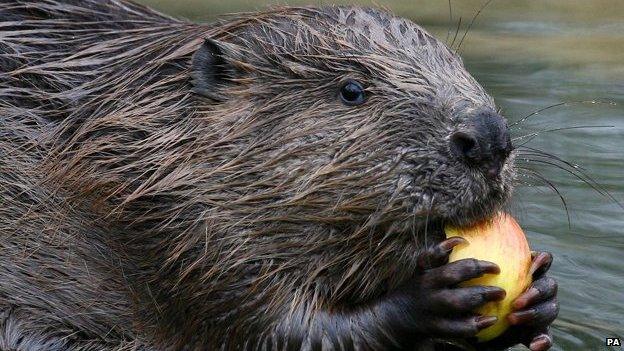
The Tayside beavers are free of diseases which could harm humans or domestic animals
David Bale, chairman of the study group and SNH's area manager for Tayside and Grampian, said the finding were "very useful".
He said: "The findings show there is no evident risk of diseases being transmitted from the Tayside beavers to other animals, or indeed to humans.
"The genetic tests tell us that they would be suitable for permanent reintroduction to Scotland, because they are Eurasian rather than North American beavers. They are also varied enough genetically to make a reasonable first step towards a full reintroduction if that was the decision of the Scottish Government.
"Our work documenting the impacts of beavers on land management interests has shown that in many situations, beavers are likely to cause few concerns.
"But if they were to be permanently reintroduced, efficient, effective and affordable ways of managing and reducing potentially significant impacts on intensively farmed land and other interests would have to be found."
The reports from the study group will be submitted to the government, along with other beaver studies, in May.
A spokesman for Scottish Land and Estates said: "We have been an active member of the Tayside Beaver Study Group and are keen that as much information as possible is available to the government ahead of the decision on the future of the beaver in Scotland.
"We are not opposed to beaver ever being reintroduced to Scotland; we simply want to ensure that any reintroduction, whatever the species, is only progressed after a robust assessment and justification process which ensures a competent decision in which impacts on land management have been fully acknowledged and accommodated.
"Scottish Land and Estates was pleased to host the environment minister on a visit to some Tayside farmers recently to discuss beaver impacts on land management and we are pleased that the report acknowledges that the Tayside population does have an impact and that if they were to be permanently reintroduced, efficient, effective and affordable ways of managing and reducing potentially significant impacts on intensively farmed land and other interests would have to be found."
- Published10 February 2014
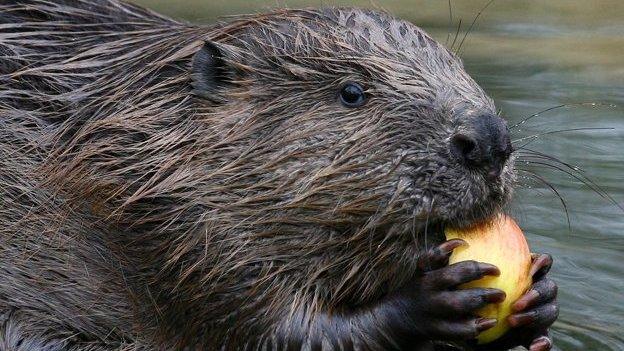
- Published20 November 2014
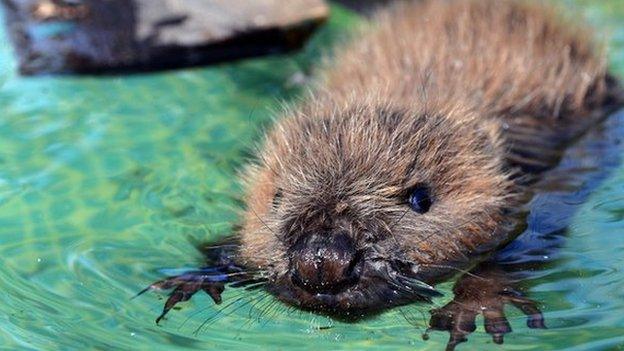
- Published16 March 2012
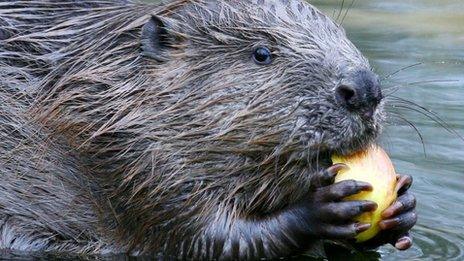
- Published2 March 2011